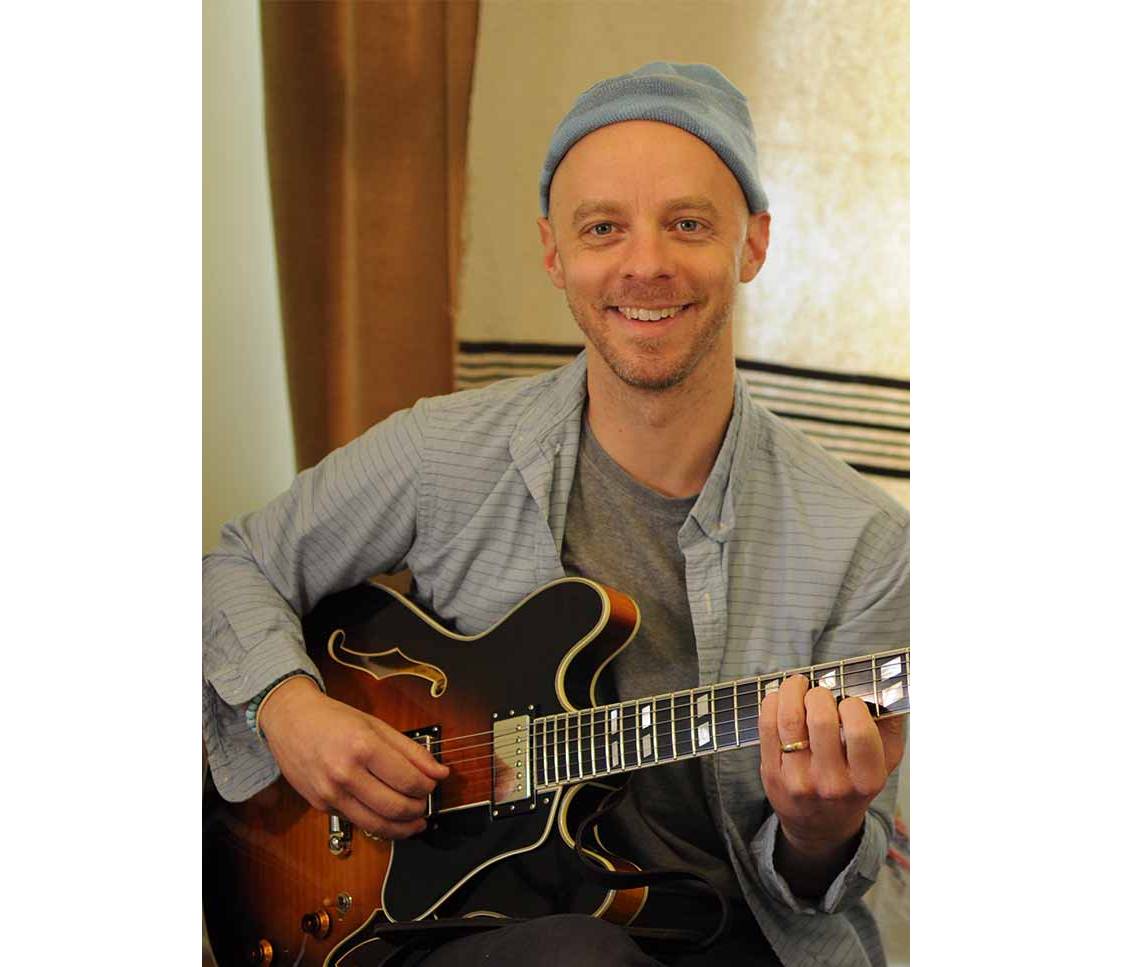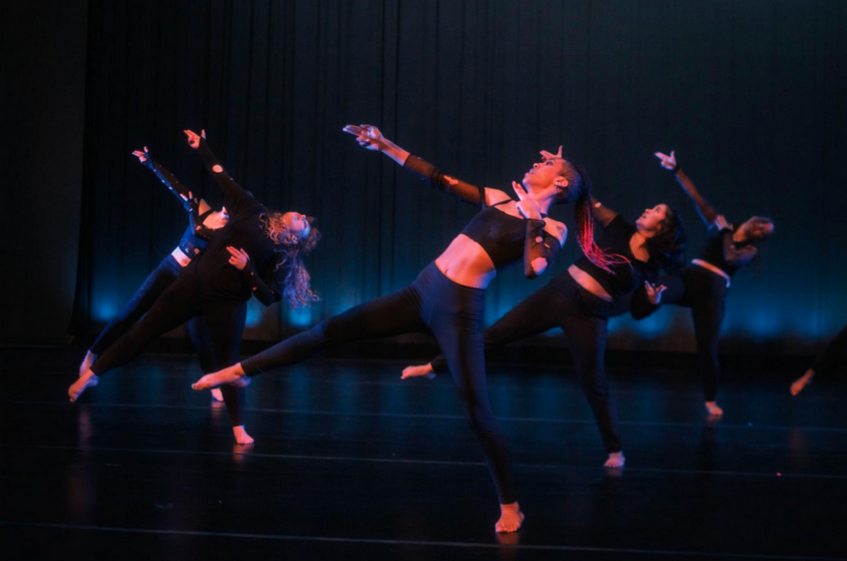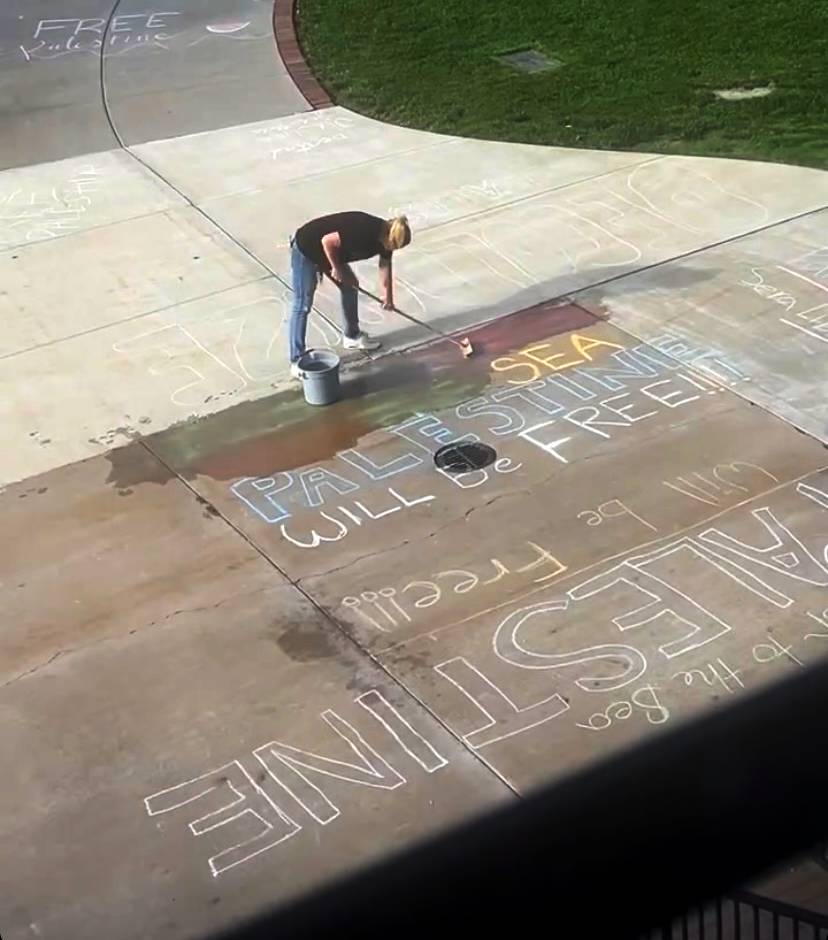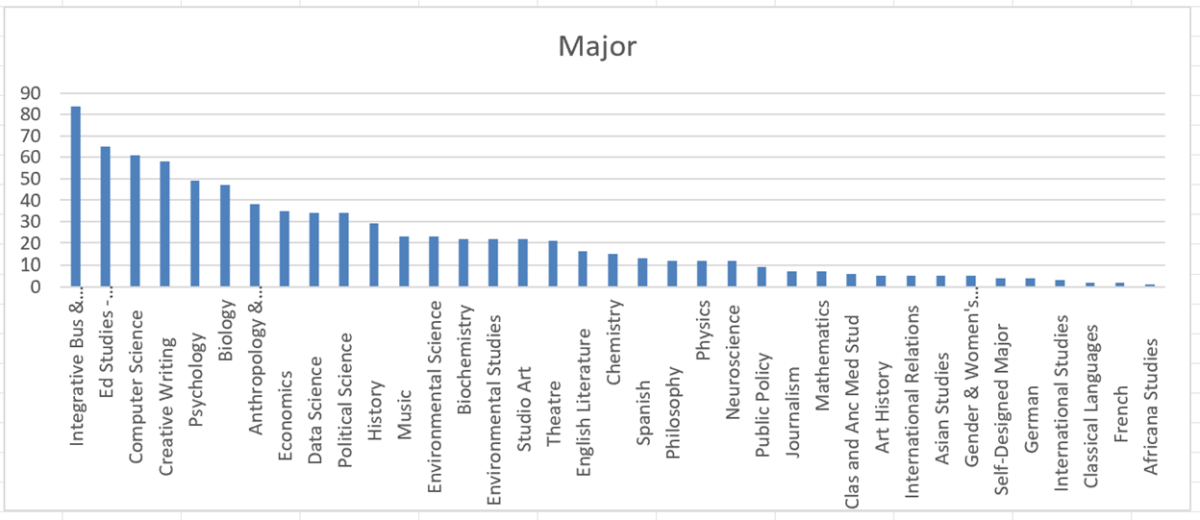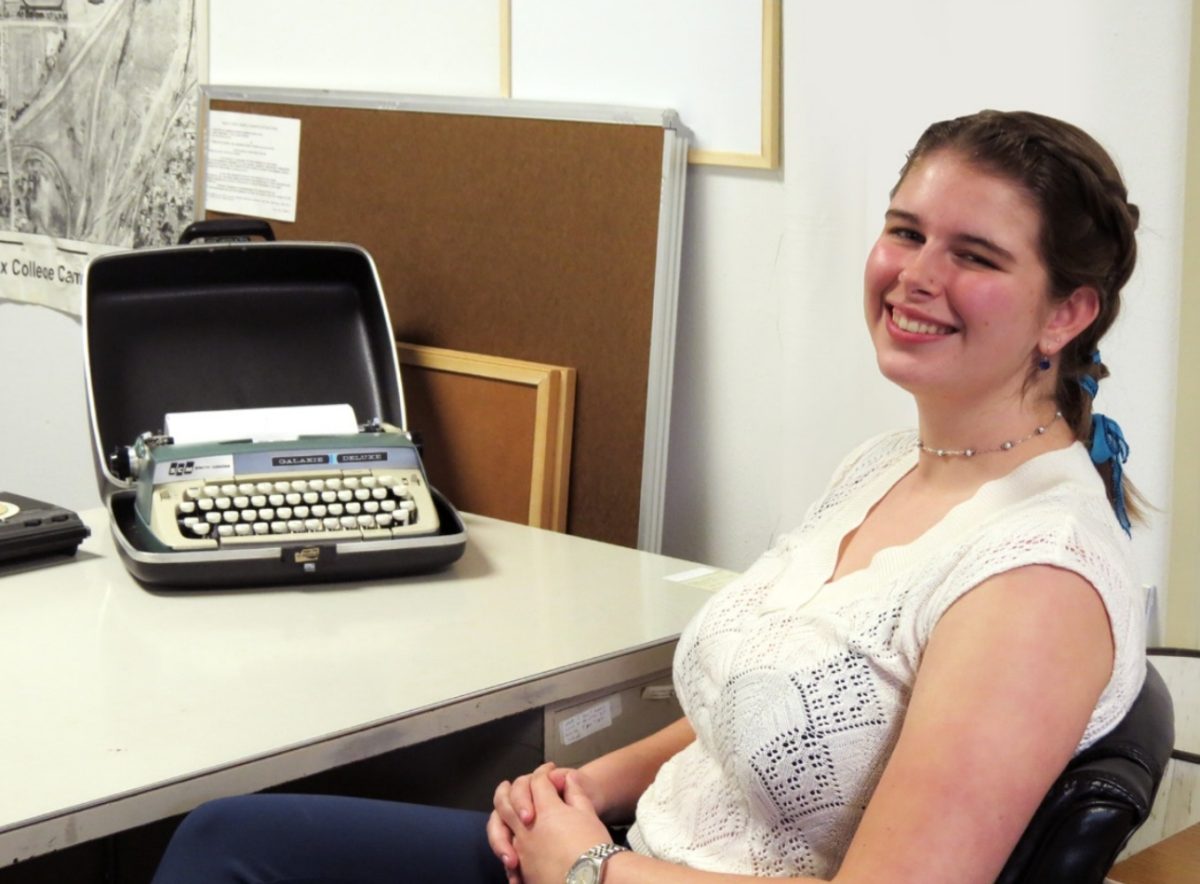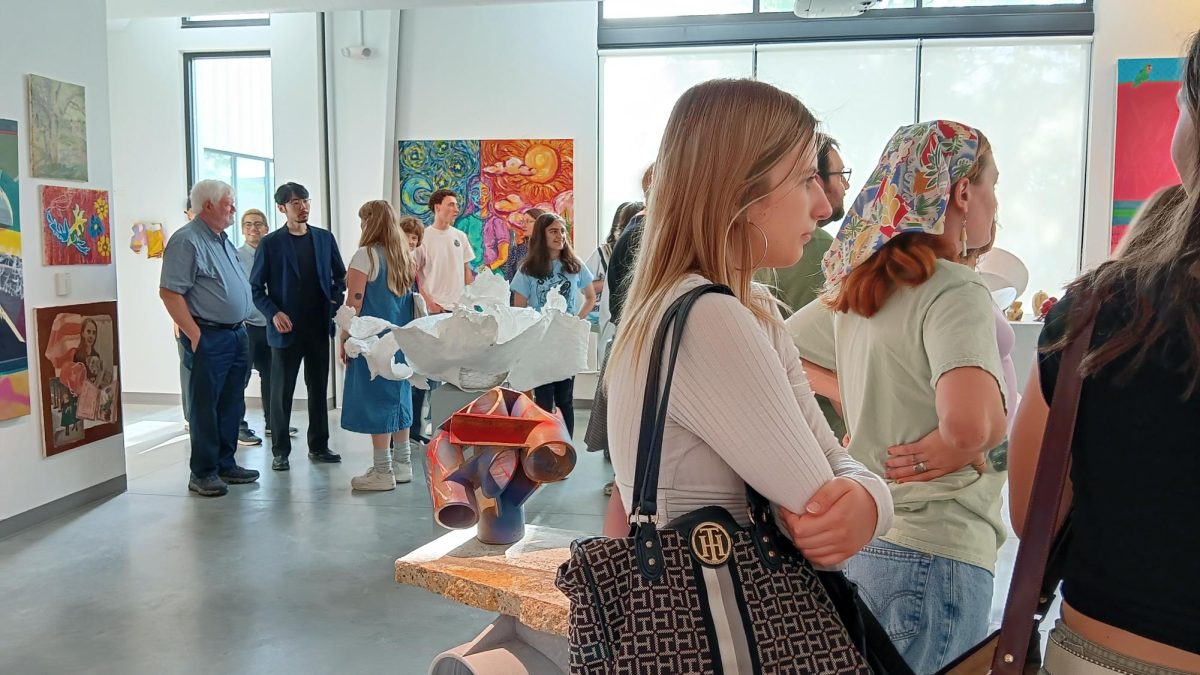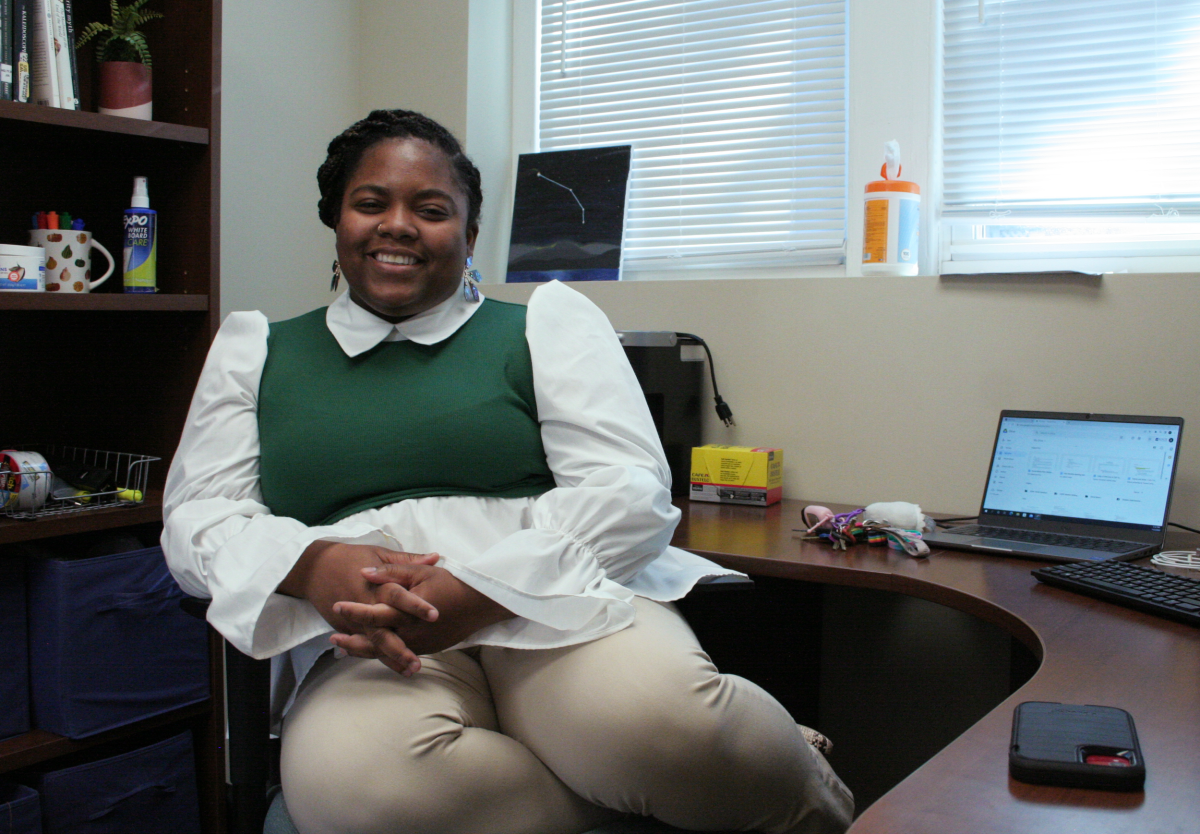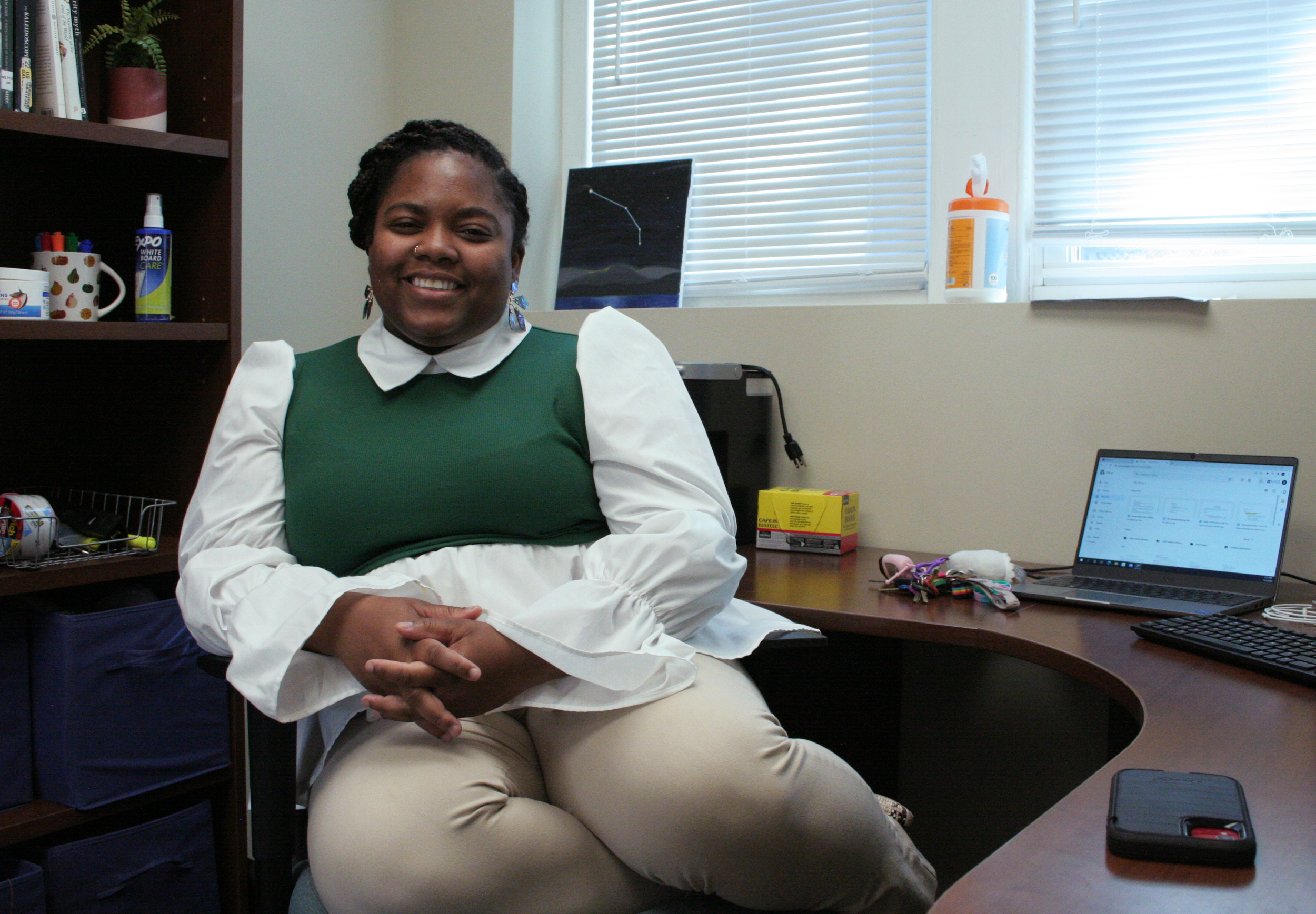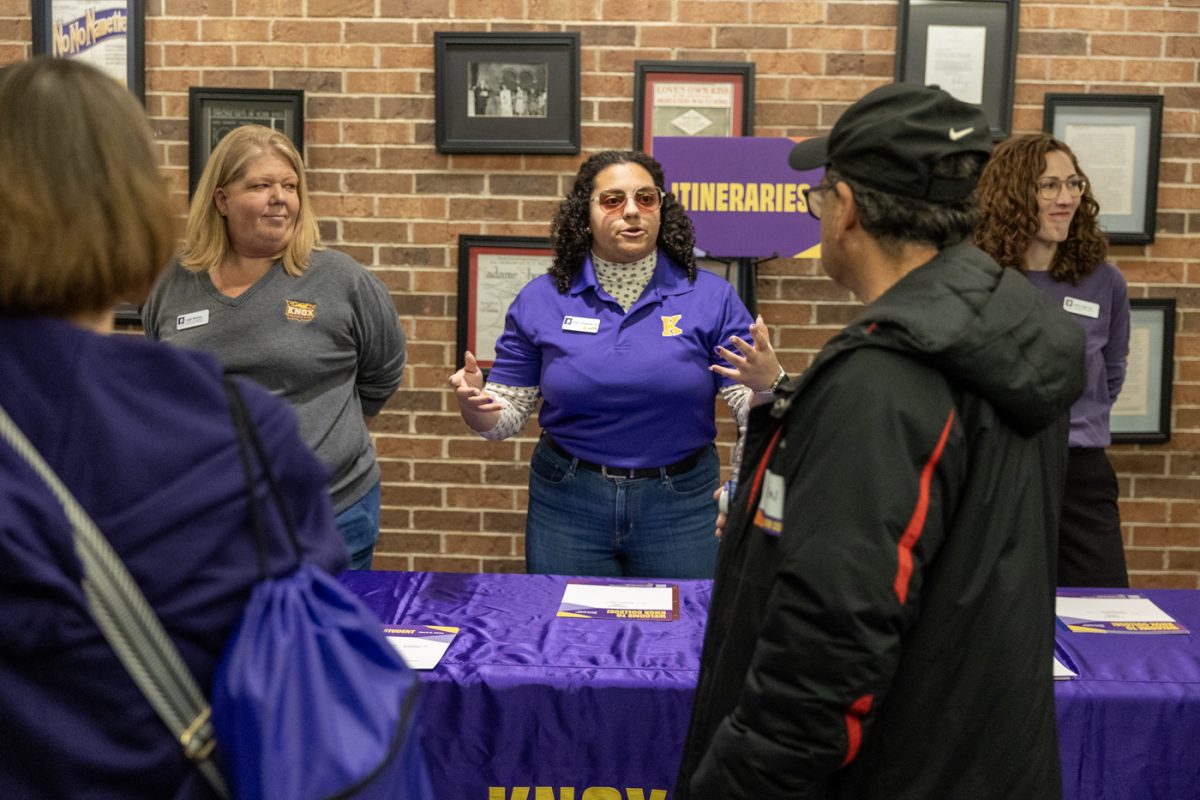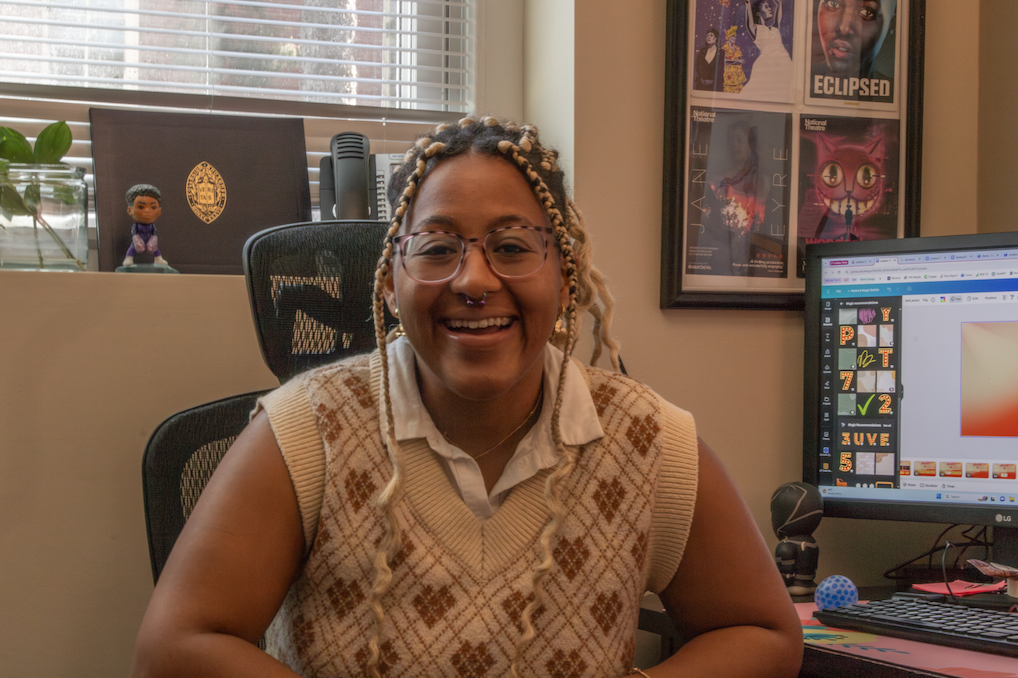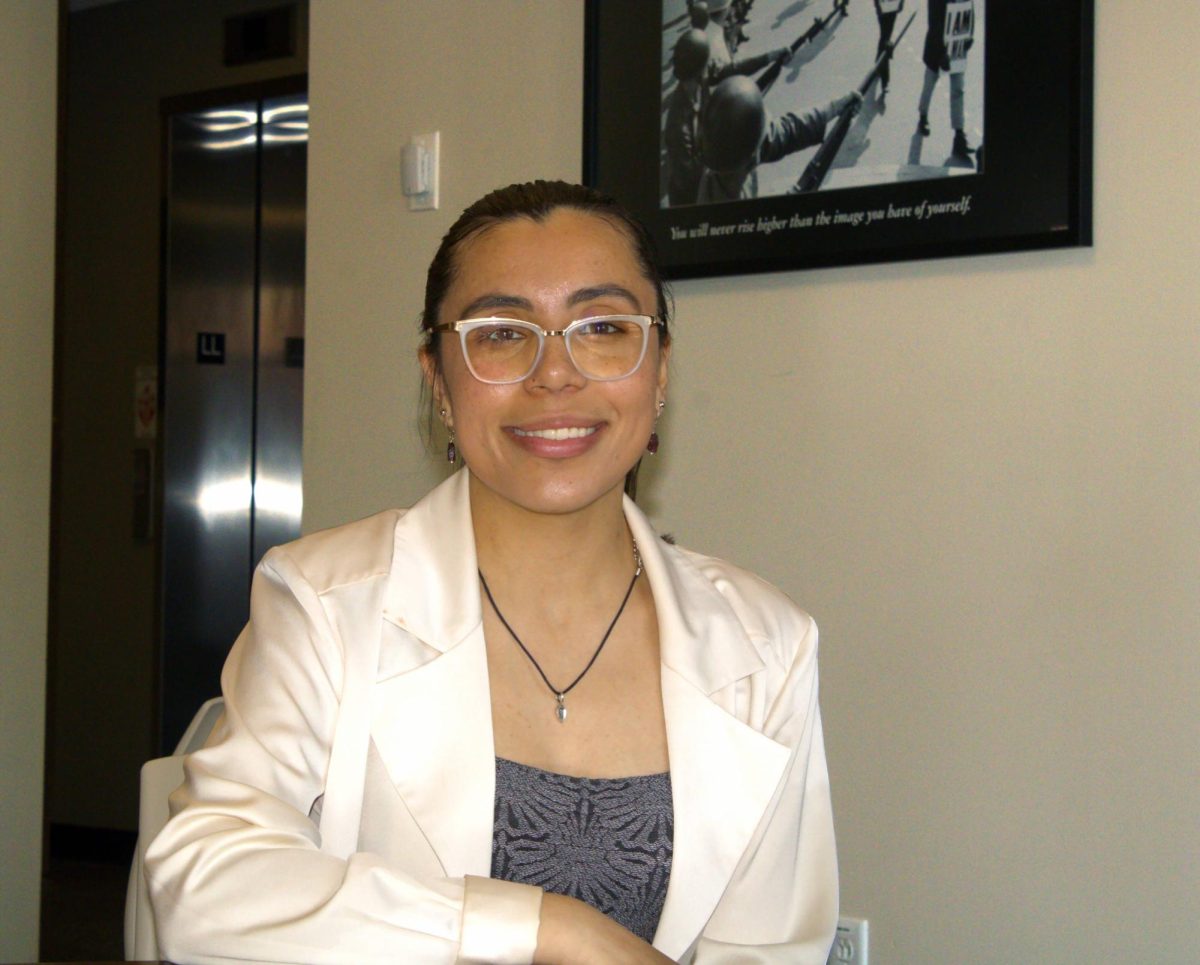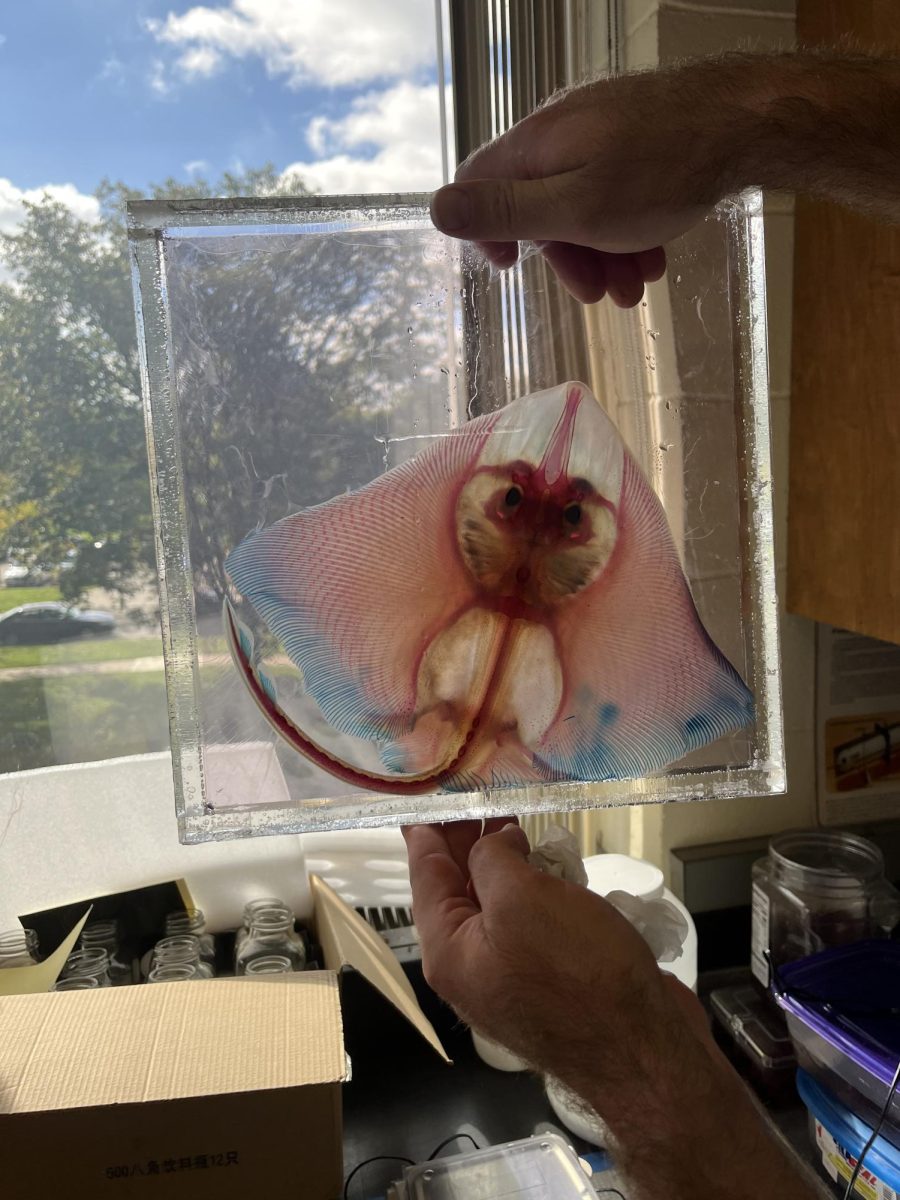New Campus LGBTQ Coordinator Shares Personal History
Photo by Red Engel
Aries Powell, the new campus LGBTQ coordinator, has always had a passion for queer outreach on college campuses. During their own education, Powell worked for their campus LGBT center and collaborated closely with other queer students to create change. At Knox, they plan to do the same, connecting queer communities on campus that may have never intersected before.
Powell was born and raised in Wilmington, Delaware. Their family is deeply rooted in the ‘tight-knit’ community. Despite the city they grew up in being larger than Galesburg, they cannot go home without seeing people they’re related to or who have known them since they were born.
“My mom’s side of the family is huge. My great-grandma had 12 kids and 56 grandkids and a couple hundred great-grandkids. Basically, they all moved to Delaware when my mom was a kid. So I grew up in this microcosm of West Virginia my entire life. Very country I would say,” Powell said.
In their childhood, Powell spent a lot of time in the Wilmington art scene. They started working backstage at shows when they were 12-years-old. As a classically trained singer, dancer, and actor, they have also spent time on the stage. They also play several instruments and write both songs and poetry. Their artistic education began at the Christina Cultural Arts Center.
“For black people in Delaware, it is the center of arts education for young black people. That’s where I grew up, that’s my home. In a lot of ways, the people in that space raised me. I learned a lot about art, a lot about culture, a lot about blackness, politics, how to be engaged in your community in meaningful ways,” Powell said.
Until now, Powell has spent their entire adult life in North Carolina. After receiving a scholarship to study at Wake Forest University, they fell in love with the state. They were able to have some cultural comforts of home while being in a new space.
“When people ask me where I’m from it’s complicated because I was born in Delaware and I feel connected to the experience of growing up there but I also feel very country – very ‘West Virginia mountain people’ sometimes,” Powell said. “Then when I moved to North Carolina in college, I felt very at home because that southern way of thinking and doing and being was always familiar to me.”
During their undergrad, Powell majored in Sociology with minors in Gender and Women’s Studies (GWS) and Africana Studies. They then went on to earn a Master’s in Women, Gender, and Sexuality Studies from the University of North Carolina Greensboro in 2021.
“It’s a great major, if you’re looking into grad programs I would definitely do it because it hits, it’s hot, it’s now, it’s for the girls. I loved my GWS education, and one of the things about Wake Forest University that I think really speaks to my experience here is that it’s a small private college but the thing about Wake that I think is a lot less present here is a huge sense of elitism and competition,” Powell said.
Historically, Powell’s family was not able to access the same opportunities as the families of most students at Wake Forest. This made the competitive and elitist nature more apparent when they attended school there. Powell feels that the energy is different at Knox.
“[At Knox] We’re here to be scholars together, we’re here to work together, whereas when I was at Wake Forest I felt like I was always in competition with people and it sucked. Especially because I’m a first-gen college student and to be in this space where people were third-generation legacies at this specific school, and I was like your grandparents went to college? That was crazy to me. I can’t imagine a world where my grandparents had went to college. Not that they aren’t intelligent people, because everyone in my family is incredibly intelligent, incredibly resourceful,” Powell said.
For Powell, the disparity between intelligence and access to college was very evident during their experience as a first generation college student.
“Even further back in my own bloodline if people had had the opportunity they would have gone and taken advantage of that but they didn’t have access. So it just meant a lot to be the first person in my family to have that kind of access to not only education but also wealth and power and it was really intimidating but really eye opening,” Powell said.
Being a community organizer has been an important part of Powell’s life. However, they have temporarily taken that hat off, because they, “feel like you can’t engage equitably with a community that you don’t live in,”. Powell has only lived here since the summer and thus feels that they are primarily still getting to know the community and its needs.
However, they have replaced that focus with their deep care for education. Their passion for the non-classroom education of a college campus has brought them here to Knox. According to Powell, a third of the Knox community is queer. This speaks to the importance of the work that queer programming accomplishes on campus.
“I’ve discovered in the process of going through my master’s program and education and such that all of the best education, all of the life-defining moments that I had as an undergraduate student weren’t in the classroom. Most of the time it was in places like intercultural life or sitting with the LGBTQ advisor, or with any of the other magnitude of groups or offices that I was involved with. That student development work is honestly the lifeblood of a college,” Powell said. “At the end of the day, you’ve got to get your degree, move on, and do great things with your life, but sometimes I think that the student development piece outside of the academics will tell you why you want to get this degree. What are you working towards? Who are you looking to serve? What communities are you a part of? What do you care about? So I really want to do that for students.”
Powell has had their own share of life-defining moments related to the work they are doing at Knox. While at Wake Forest, they worked for Freedom School, a reading camp for young students, during the summer between their junior and senior year. Because they were on campus during the summer, they ended up living with athletes who were there for summer programs as well. Usually, Powell never had an opportunity to interact with that group of people on campus. However, that summer, they were talking to three people on the women’s basketball team. A few minutes into talking, they realized that they were all gay. Neither Powell nor the other students had realized there were other lesbians on campus. This opened Powell’s eyes to the widespread queerness that can be hidden on even a small campus.
“I’m thinking that I’m the gayest person on campus, like I hang out in the LGBTQ center, I’m an LGBTQ center change agent, I pilot queer programs on campus, I’m a GWS minor, there’s no way I don’t know every gay person on campus. But no, we were stuck in our own little bubble. Somewhere across campus on the basketball court talking about, ‘you gotta get your head in the game,’ whatever, was this other group of lesbians. As I got a little bit older and as I started thinking about this as a career I thought about that moment,” Powell said.
Powell feels that it is important to bring together groups of queer people across campus, who may have never interacted otherwise.
“What about all these queer people we never see because they aren’t involved in the gay club or the gay stuff? What would it have meant at my college if the LGBTQ center had sponsored a tailgate at the women’s basketball games? What would it have meant if the LGBTQ change agents had sponsored a queer art gallery?” Powell said. “So yeah, basketball lesbians are why I got into this.”
With the students themselves, Powell has felt an energy that does not necessarily exist on campuses typically. They feel that the students are driven with the work that they do, they come with a plan and just need a platform, which Powell can provide.
“One of the things that I really loved while interviewing and seems to not be all talk is that the students are really dope… I’m the only dedicated LGBTQ staff member and at any other college that would be a huge problem, like, ‘oh my god why don’t you have a staff of like 12 people?’,” Powell said. “But here the student groups really pull the load. They do a lot. I absolutely love to see it, I love to see student leadership, because mentorship, student leadership development has always been my big push. I’ve noticed here, students come to me with their ideas. I don’t have to come up with a whole bunch of things and be like, ‘oh I have to put my ear to the ground and try to hear what the students want,’. The students come and tell me what they want.”
Powell’s partner Kayla moved with them from North Carolina. Together, they spent the time before students were on campus, “eating [their] way through the city,”. They were told from friends in Indianapolis that midwestern food was bad compared to the south, but they have been pleasantly surprised, saying they’ve been to Iron Spike, “maybe five or twelve times,”.
In their position, Powell splits their time 60-40 between LGBTQ-specific programming and supporting Tiana, the Associate Dean of Intercultural Life. Powell is not only here to support students, but also works with faculty and staff in a plethora of ways.
“I’m also here to support the training and diversity needs of our faculty and staff on an administrative level. I do trainings and sessions on LGBTQIA+ things for diversity and inclusion at the college. I am also charged with making sure that LGBTQ faculty and staff feel included and served and like they are being supported well. That I’m trying to branch into more as I’m getting into this. I feel like I see a lot of students and talk to a lot of students and I really want to get out there and talk to more faculty and staff,” Powell said.
Outside of programming, Powell is available to help queer students in whatever way they can.
“I help people do the name change process, not only on this campus but legally. I’m ready to help folks deal with housing issues and moderate real discussions about gender and sexuality between students. Not only to make LGBTQ students feel safe but also to catch everyone else up so we can all make LGBTQ students feel safe on this campus,” Powell said.
Powell hosts office hours from 9 am to 4 pm at the Gender and Sexuality Center (located next to Williston) every Friday. They keep the entire day open for students to come and talk to them about programming ideas, concerns, and just how they’re feeling in general.
“Please come talk to me, I’m not a scary person. I’m down to talk about everything. I want to hear your programming ideas and things that you want to do on campus and I want to make them happen; if they’re reasonable,” Powell said. “We should all feel like we have a home here. We should all feel like we have a real sense of belonging on this campus.”

